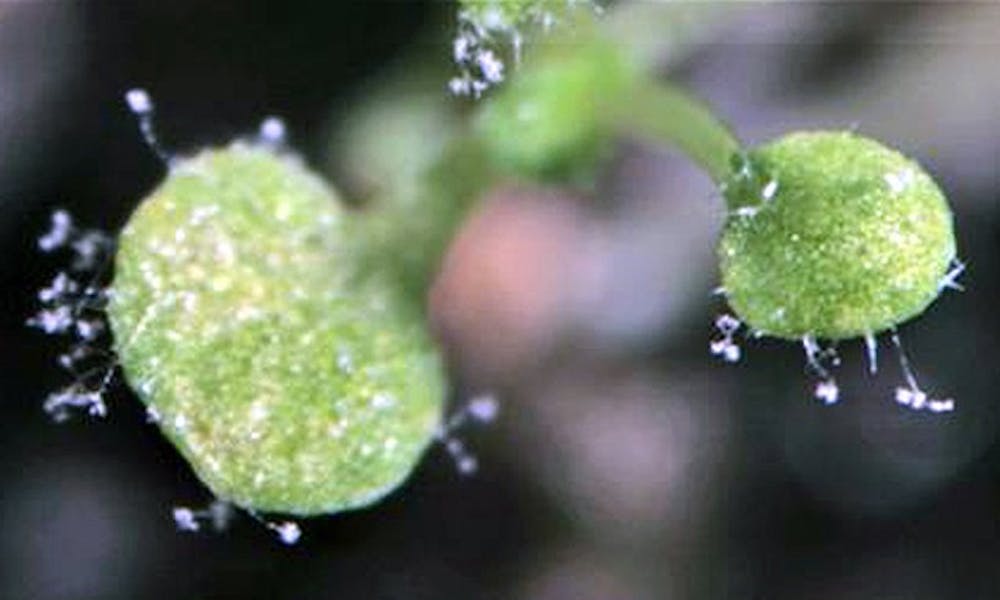Early in the morning, as humans fight symptoms of fatigue with a cup of hot coffee, the flowering plant Arabidopsis prepares itself for a battle against morning mildew using its own powerful chemical compounds.
Duke researchers have found that the mustard plant protects itself from fungal attack by cranking up parts of its immune system each morning, demonstrating for the first time that a plant’s immune response is functionally linked to its internal circadian cycle.
“It is a very intriguing and thought-provoking idea that there is an anticipation of attack,” said Philip Benfey, Paul Kramer professor of biology. “You think of the anticipation that comes with circadian rhythm with, ‘we get ready to wake up and get coffee,’ but to have an anticipation for warding things off is a new mechanism.”
The research, published in the Feb. 3 edition of Nature, was conducted by Duke biology professor Xinnian Dong and her graduate students Wei Wang and Jinyoung Barnaby. Dong said the Arabidopsis’ daily response developed because the downy mildew Hyaloperonospora releases most of its spores in the morning, habitually spilling them out across the fields and onto the unsuspecting plants. The Arabidopsis plant learned to stockpile its defensive chemicals in the evening and release them early each morning.
“The plant learned when to turn on their defense, when the threat of infection is the highest,” Dong said.
Wang noted that the defense mechanism allows the plant to save energy, which would be wasted later in the day when there is little risk of fungal infection.
During the study, Arabidopsis plants were placed in greenhouses, where lights flickered on and off in 12-hour cycles to create artificial days. The researchers exposed the plants to Hyaloperonospora spores at dusk on some days and at dawn on others. Dong and her students found that the leaves of plants exposed at dusk would begin to sprout small limbs—the result of a mildew infection. The plants exposed at dawn were surprisingly safe from this sort of infection, supporting the hypothesis that they prepare themselves for battle every morning as a part of their daily cycle.
Dong said it is surprising that these defenses were expressed in a regular and constant daily cycle, even without pathogen presence.
“Imagine if we were normally attacked by viruses at 5:00 in the evening, and you could show that our immune system got ready to go at 4:30,” Benfey said. “It is a pretty remarkable bit of engineering that went on in these plants.”
The researchers’ hypothesis was further supported by the examination of mutant plants that lacked a key protein responsible for maintaining a daily cycle. These plants were seemingly unprepared for the daily attack of the mildew at dawn and infected more frequently as a result.
Benfey said Dong’s study should tell us something about the world these plants live in and speculated that humans may have evolved similar defense mechanisms if we were forced to fight infection at predictable times.
“Unfortunately, the flu or common cold comes at relatively random times of year, so we would really not have evolved something like this,” he said.
Get The Chronicle straight to your inbox
Signup for our weekly newsletter. Cancel at any time.

